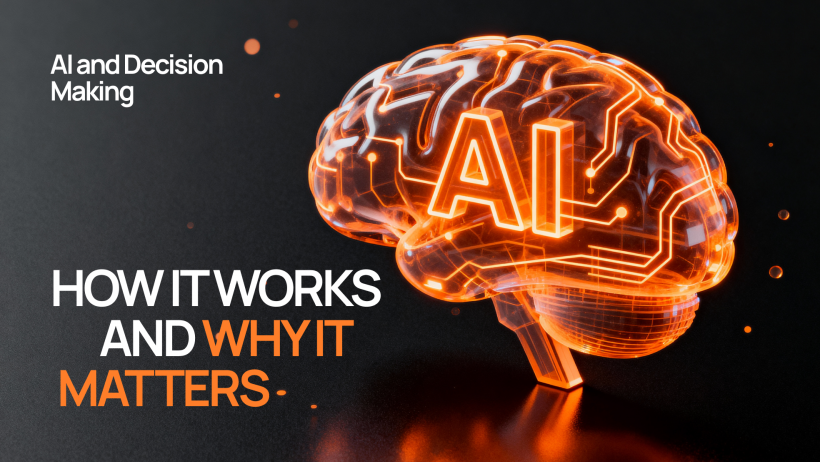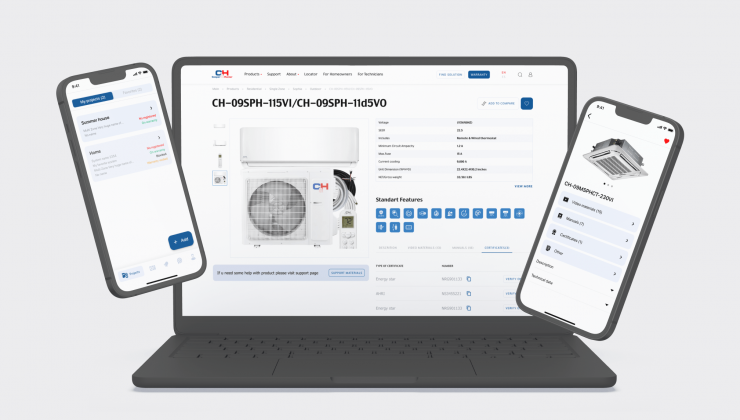So you're sitting in a meeting. Someone throws out three different strategies. They all sound reasonable. Everyone's got an opinion. And somehow you need to pick the winner.
Sounds familiar?
Look, here's what nobody tells us about business decisions: most of them are educated guesses dressed up with PowerPoint slides and confidence. We do our best with the information we have, and then we hope we're right.
But what if you didn't have to hope? What if you could actually know, based on real data, predictive analytics, and insights from millions of data points, which choice gives you the best shot at success?
That's not fantasy. That's AI decision making in 2025. And it's already transforming how smart businesses operate.
It's about finally having a tool that can process massive amounts of information, spot patterns you'd never catch, and give you the insights you actually need to make smarter calls. Whether you're planning next quarter's strategy or deciding how to respond to a competitor's move, AI is changing the game.
Let me show you exactly how this works and why it matters for your business.
What is AI decision making?
AI decision making is basically when machines use algorithms and data to make choices or recommendations. But that definition makes it sound way more robotic than it actually is.
Think of it like this: you've got a super-smart colleague who's read every report, analyzed every trend, and can spot patterns you'd never catch even if you had a month. That's what makes AI for decision making.
The technology uses machine learning, data analysis, and predictive models to evaluate options and suggest the best course of action. Sometimes it makes the call itself. Sometimes it just gives you the insights you need to decide.
By 2025, 80% of companies are expected to use AI for decision-making and automation. That's not a small number. We're talking about a fundamental shift in how businesses operate.
How does AI make decisions?

Okay, so this is where it gets interesting (and maybe a little technical, but I'll keep it simple).
AI makes decisions through several key mechanisms.
Data collection and processing. The system gathers massive amounts of information from multiple sources. We're talking customer behavior, market trends, historical patterns, real-time data — everything. And I mean everything. One of my clients once told me they were shocked at how much relevant data they'd been sitting on without realizing it.
Pattern recognition through machine learning. This is where algorithms come in. They analyze the data, looking for correlations and patterns that humans might miss. It's not magic (though it can feel like it sometimes). It's mathematics on steroids.
Predictive analytics. Based on those patterns, the system can forecast what's likely to happen next. Will customers buy this product? Which marketing campaign will perform best?
Automated decision execution. In some cases, the AI doesn't just recommend, it acts. Approving a loan. Adjusting prices. Routing customer inquiries. All without waiting for a human to click "yes."
The algorithms behind this include neural networks, decision trees, and deep learning models. But honestly? You don't need to understand the technical details to benefit from them. You just need to know they work.
How does AI help in decision making: its benefits and examples
So why should you care about AI making decisions? Because it solves problems you probably deal with every day.
Speed that actually matters. AI-powered data analytics enables businesses to make decisions faster and more accurately than ever before. What used to take weeks now takes minutes. I'm not exaggerating. Think about loan approvals, inventory management, or customer service responses. AI doesn't need coffee breaks.
Accuracy you can trust. Humans make mistakes. We get tired, we have biases, we miss things. AI processes information consistently. Every. Single. Time. AI has shown 98% accuracy in skin cancer detection, compared to doctors' 87%. That's the kind of precision that saves lives.
Handling complexity without breaking a sweat. Try analyzing data from 50 different sources simultaneously. Now try doing it in real-time. Good luck. AI does this before you've finished your first cup of coffee.
Here's what this looks like in practice:
- Strategic decisions. Should we expand to a new market? AI analyzes economic indicators, competition, customer demographics, and risk factors to give you a data-backed recommendation.
- Tactical decisions. Which customers should our sales team prioritize today? AI scores leads based on likelihood to convert, potential value, and timing.
- Operational decisions. How do we optimize our supply chain? AI predicts demand, identifies bottlenecks, and suggests adjustments in real-time.
- Risk management. Is this transaction fraudulent? AI spots anomalies in milliseconds, protecting your business and customers.
What’s the beauty of it? You're not flying blind anymore. You've got insights that actually help you make smarter calls.
Real-world applications of AI decision making in business

Let's talk about where this technology is already making waves. Because it's not some distant future thing, it's happening right now.
Banking and finance
This is probably where AI shines brightest. Banks use it for everything from credit scoring to fraud detection. Agentic AI systems in loan origination can ingest real-time data across dozens of sources, from macroeconomic indicators and applicant digital behavior to regulatory changes and sentiment analysis, to make complex decisions.
One major financial institution I know about cut their loan processing time from days to hours. Just by letting AI handle the initial assessment and risk analysis.
Healthcare
The stakes here are literally life and death. AI helps doctors diagnose diseases, recommend treatments, and prioritize patient care. AI systems can analyze vast datasets, including patient records, medical images, and genetic information, to identify patterns that might be missed by human doctors.
Quick story: a hospital implemented AI to manage emergency room wait times. The system analyzes patient symptoms, medical history, and current ER load to ensure critical cases get seen first. It's not perfect, but it's saved lives.
eCommerce
Ever wondered how Amazon seems to know what you want before you do? That's AI decision making at work. Product recommendations, dynamic pricing, inventory management, personalized marketing — all powered by algorithms analyzing your behavior and millions of other data points.
Quick comparison across industries
Here's how different sectors are actually using AI right now (not in five years, not "coming soon" but today).
| Industry | AI Application | Key Benefit |
|---|---|---|
| Banking | Credit scoring & fraud detection | Risk reduction + faster approvals |
| Healthcare | Diagnostic assistance & treatment planning | Improved accuracy + better outcomes |
| eCommerce | Personalization & inventory optimization | Higher conversion + lower costs |
| Manufacturing | Supply chain optimization | Reduced waste + better forecasting |
| Customer service | Automated support & routing | Faster resolution + lower costs |
Have you noticed the pattern? Each industry uses AI for its most data-heavy, time-sensitive decisions. The stuff that humans can do, but not at scale and not fast enough to stay competitive.
The future of AI and decision making
Now, let's talk about where this is all heading. Because we're just scratching the surface.
Human-AI collaboration (the sweet spot)
Here's what I think a lot of people get wrong. The future isn't AI replacing humans. It's humans and AI working together, each doing what they do best.

Gartner predicts that by 2028, 15% of day-to-day work decisions will be made autonomously by AI agents (up from 0% in 2024). But that other 85%? That's where you come in.
AI handles the data-heavy, repetitive decisions. You handle the strategy, ethics, creativity, and nuance. That's the partnership that wins.
Business prospects that actually excite me
Agentic AI is the next frontier. These are autonomous agents that can plan, execute, and adapt entire workflows. By 2028, 33% of enterprise software applications will include agentic AI, up from less than 1% in 2024.
What does this mean for you? Imagine AI agents that don't just tell you what to do, they go ahead and do it, learning and improving as they work.
Real-time decision making will become the norm. Not hourly. Not daily. Real. Time. Market conditions change? Your AI adjusts pricing instantly. Customer behavior shifts? Your marketing adapts before your competitors even notice.
Personalization at scale becomes possible. Not "Hi [First Name]" in an email. I'm talking about genuinely tailored experiences for every single customer, based on their unique preferences, history, and needs.
Think about it: right now, you probably segment your customers into maybe 10-20 groups and treat everyone in each group the same way. With AI, you can create segments of one. Every interaction, every recommendation, every offer can be uniquely relevant to that specific person at that specific moment. That's the kind of personalization that builds loyalty and drives serious revenue.
The challenges we can't ignore
But (and there's always a but), we need to be smart about this. AI decision making raises serious questions about ethics, transparency, and bias. Who's accountable when AI makes the wrong call? How do we ensure these systems treat everyone fairly?
Only 31% of surveyed IT professionals trust AI-driven systems to make autonomous decisions without human oversight, whereas 44% don't. That trust gap is real, and it matters.
The companies that succeed will be the ones that prioritize responsible AI development. Clear guidelines. Human oversight for high-stakes decisions. Regular audits to catch bias.
Because at the end of the day, AI is a tool. And like any tool, it can be used well or poorly. The difference is in how thoughtfully we deploy it.
Conclusion
So where does all this leave us?
AI decision making is transforming how businesses operate, from the smallest tactical choices to the biggest strategic moves. The technology gives you speed, accuracy, and insights that were simply impossible before.
But here's the key: it's a tool. An incredibly powerful one, sure. But still a tool. The magic happens when you combine AI's analytical power with human judgment, creativity, and ethical reasoning.
As we move into 2025, the influence of AI is set to grow even further, with real-time automated decision-making across industries. The question is how quickly you'll adopt it and how effectively you'll integrate it into your business.
The companies winning in 2025 and beyond? They're the ones leveraging AI to make smarter decisions faster, while keeping humans in the loop where it matters most.
Ready to explore how AI decision making could transform your business? We've helped dozens of companies navigate this transition, and we'd love to chat about what's possible for you.

FAQ
How does AI improve business decision processes?
AI processes vast amounts of data quickly and consistently, identifying patterns and insights humans might miss. It eliminates bias from fatigue or emotion, speeds up analysis, and enables real-time adjustments to changing conditions. Essentially, it gives businesses the information they need to make better decisions faster.
How does AI help in making decisions?
AI collects and analyzes data from multiple sources, uses machine learning algorithms to identify patterns, creates predictive models to forecast outcomes, and provides recommendations or autonomous actions based on that analysis. It handles the heavy lifting of data processing so humans can focus on strategy and judgment.
Can AI make decisions without human input?
Yes, in certain contexts. AI can autonomously handle routine, low-stakes decisions like approving standard loan applications, routing customer inquiries, or adjusting inventory. However, for high-stakes, ethical, or complex strategic decisions, human oversight remains essential. The best approach combines AI efficiency with human judgment.
What industries use AI for decision making?
Banking and finance (credit scoring, fraud detection), healthcare (diagnostics, treatment planning), eCommerce (personalization, inventory management), manufacturing (supply chain optimization), insurance (claims processing), and customer service (automated support). Basically, any industry dealing with large amounts of data and frequent decisions.
What are examples of AI decision making in real life?
Netflix recommending shows based on your viewing history. Banks approving or rejecting loan applications. Hospitals prioritizing emergency room patients. Amazon adjusting prices dynamically. Fraud detection systems flagging suspicious transactions. Self-driving cars making split-second navigation decisions. It's all around us, often working invisibly in the background.


